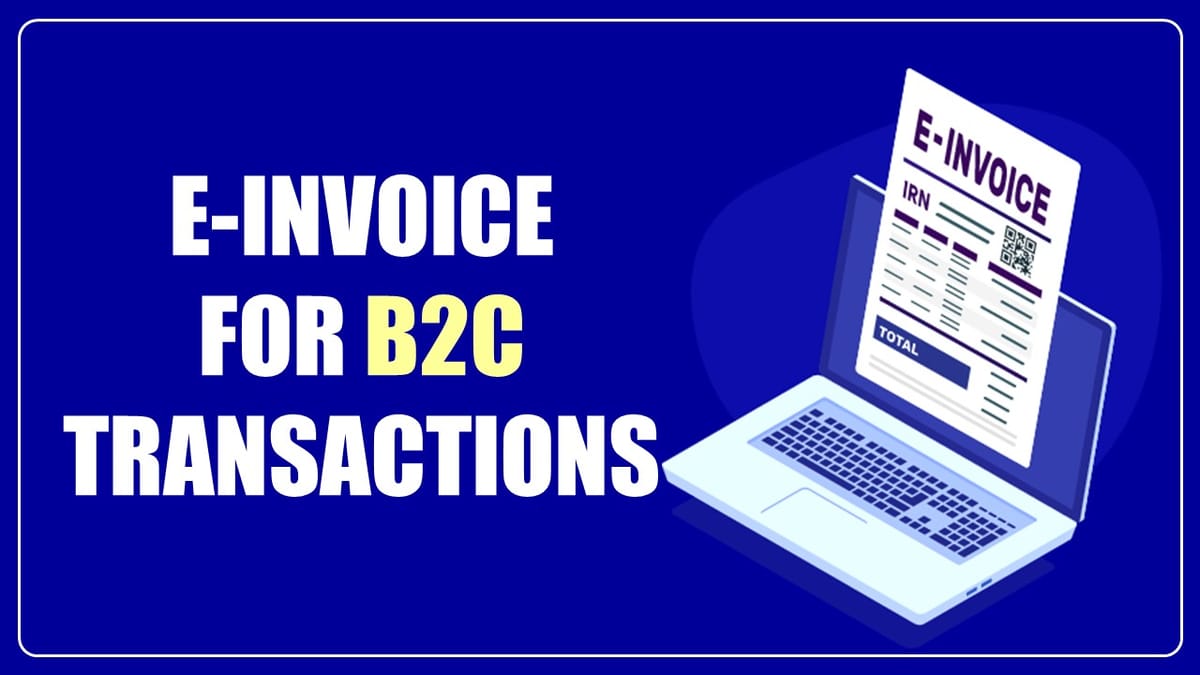Reetu | Sep 5, 2024 |

GST Council may propose E-invoice for B2C Transactions
As per the news shared by Business Standard, businesses across the country may soon be obliged to issue electronic invoices, or e-invoices, directly to consumers for the sale of goods and services.
The Goods and Services Tax (GST) Council’s upcoming meeting on Monday is anticipated to debate expanding the e-invoicing obligation to include business-to-consumer (B2C) transactions. Currently, e-invoicing is required for businesses with a turnover of Rs. 5 crore or more, but only for business-to-business (B2B) transactions.
“A pilot program may be proposed to introduce voluntary e-invoicing in selected sectors, in collaboration with states willing to participate,” according to a government person familiar with the proposal.
E-invoice is a system in which GSTN electronically authenticates B2B invoices for subsequent usage on the common GST portal. Under the electronic invoicing system, the Invoice Registration Portal (IRP) will assign an identification number to each invoice, which will be administered by the GST Network.
Over the years, the eligibility criteria for E-invoices have changed. Let’s have a look at it.
| AATO | Date of E-Invoicing |
| Above Rs.500 Cr | 1/10/2020 |
| Rs.100 Cr to Rs.500 Cr | 1/1/2021 |
| Rs.50 Cr to Rs.100 Cr | 1/4/2021 |
| Rs.20 Cr to Rs.50 Cr | 1/4/2022 |
| Rs.10 Cr to Rs.20 Cr | 1/10/2022 |
| Rs.5 Cr to Rs.10 Cr | 1/8/2023 |
| Less than Rs.5 Cr | OPTIONAL |
In case of any Doubt regarding Membership you can mail us at [email protected]
Join Studycafe's WhatsApp Group or Telegram Channel for Latest Updates on Government Job, Sarkari Naukri, Private Jobs, Income Tax, GST, Companies Act, Judgements and CA, CS, ICWA, and MUCH MORE!"